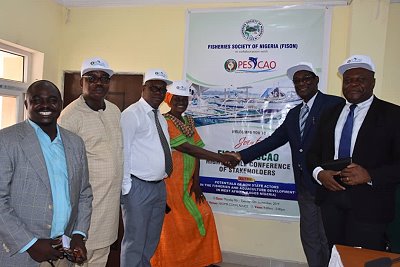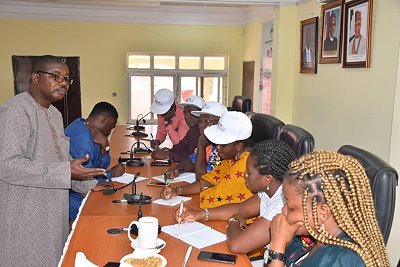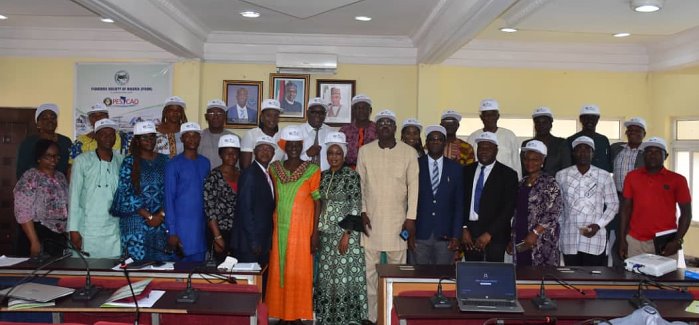 From 9 to 10 September 2019, the Fisheries Society of Nigeria (FISON) and the EU funded “Improving Fisheries Governance in Western Africa Project” (PESCAO)-ECOWAS met in the premises of the Nigerian Institute for Oceanography and Marine Research in Victoria Island, Lagos, to discuss potential for action of non-state actors in fisheries and aquaculture in West Africa.
From 9 to 10 September 2019, the Fisheries Society of Nigeria (FISON) and the EU funded “Improving Fisheries Governance in Western Africa Project” (PESCAO)-ECOWAS met in the premises of the Nigerian Institute for Oceanography and Marine Research in Victoria Island, Lagos, to discuss potential for action of non-state actors in fisheries and aquaculture in West Africa.
FISON and the Federal Ministry of Agriculture and Rural Development of the country made moves towards a combined top-down and bottom-up approach to resource management welcomed by West Africa Non-State Actors for Artisanal Fisheries and Aquaculture (WANSAFA) in Nigeria.
 The conference identified lack of a reliable database on existing fisheries and aquaculture value chain for robust policy formulation on demand and supply. As Nigeria's own marine resources are insufficient to meet demand, trade makes up the difference. Therefore, trade links between Nigeria and other West African countries should be improved to help address the deficit. Better data would be of great help in this context.
The conference identified lack of a reliable database on existing fisheries and aquaculture value chain for robust policy formulation on demand and supply. As Nigeria's own marine resources are insufficient to meet demand, trade makes up the difference. Therefore, trade links between Nigeria and other West African countries should be improved to help address the deficit. Better data would be of great help in this context.
It was suggested that a reliable estimate of volume and value of artisanal fish trade should be established. This can be achieved by detailed mapping of products traded and circuits used as well as constraints faced.
The conference advocated the collaboration with local stakeholders through capacity building for the sustainable implementation of programmes targeted for local communities especially within the riverine area.
Mundus maris was represented by Prof. Stella Williams (in orange dress below). She reported on early experiences during the pilot phase of the small-scale fisheries academy in Senegal, which could be of use in recommended capacity building in Nigerian small-scale fishing communities.









